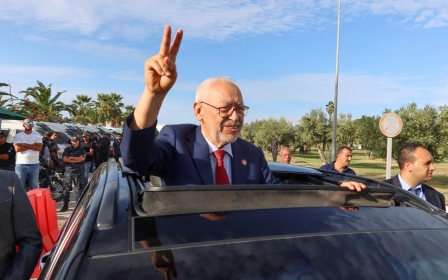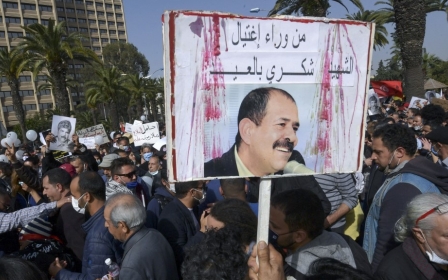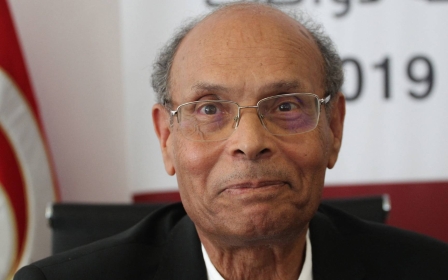Three Tunisian pundits arrested over critical remarks, say lawyers

Tunisian authorities have arrested three political commentators over their criticism of the government, according to legal sources.
Lawyer and commentator Sonia Dahmani was arrested late on Saturday after criticising the state of Tunisia on television, her attorney wrote on Facebook, saying there was a "police attack against the bar association headquarters" in Tunis, with "lawyers assaulted and the abduction of colleague Sonia Dahmani to an unknown location".
Lawyer Ghazi Mrabet told AFP that Dahmani's arrest came on the same evening that TV and radio presenter Borhen Bssais and political commentator Mourad Zeghidi were also arrested for critical comments.
Mrabet said that on Sunday the pair had been placed under a "48-hour detention warrant and [they] will have to appear before an examining magistrate".
According to Mrabet, Zeghidi was being pursued "for a social media post in which he supported an arrested journalist", referring to Mohamed Boughalleb, who in April was sentenced to six months in prison for defamation of a public official, as well as for "statements made during television shows since February".
New MEE newsletter: Jerusalem Dispatch
Sign up to get the latest insights and analysis on Israel-Palestine, alongside Turkey Unpacked and other MEE newsletters
Mrabet said Bssais was detained under Decree 54, which punishes the production and dissemination of "false news".
The decree was signed by President Kais Saied in September 2022 and, according to the National Union of Tunisian Journalists, more than 60 journalists, lawyers and opposition figures have been prosecuted under it since the decree came into force.
Saied, a former constitutional law professor, was democratically elected as president in 2019. A fiery populist, he billed himself as an outsider who could take on Tunisia's established political parties, which oversaw growth in democracy but also mounting economic problems in the country of 12 million.
In 2021, however, he shut down parliament and replaced it with a rubber-stamp assembly, an act whose planning was revealed by MEE two months earlier.
He later rewrote the constitution to consolidate power and has targeted political opponents. Meanwhile, his vow to fix the country's ailing economy has fallen flat, as Tunisians cope with high inflation and shortages of basic goods.
In the past 18 months, the president has dismissed several ministers, including prime minister Najla Bouden, without explanation.
Saied immediately replaced her with Ahmed Hachani, a retired central bank employee who had shared articles on his Facebook account espousing conspiracy theories.
In the past year, about 20 opposition, media and business figures have been imprisoned, accused of "plotting against state security".
Among the other prominent opposition figures to be detained are former UK resident Said Ferjani, former justice minister Noureddine Bhiri, and former public prosecutor Bechir Akremi.
Amnesty International has labelled the arrest campaign a "politically motivated witch hunt".
Middle East Eye delivers independent and unrivalled coverage and analysis of the Middle East, North Africa and beyond. To learn more about republishing this content and the associated fees, please fill out this form. More about MEE can be found here.




